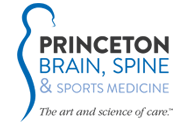Sports Medicine
State-of-the-Art Sports Medicine Care
Dr. Dhimant J. Balar, DO
Princeton Brain, Spine & Sports Medicine provides elite, non-surgical expertise for competitive and recreational athletes, fitness enthusiasts and active individuals of all levels. Developing customized treatment plans tailored to a patient’s needs and goals, Dr. Dhimant J. Balar partners with primary care physicians, physical therapists and other specialty clinicians to provide collaborative solutions for managing pain, rehabilitating injuries, improving mobility and restoring function.
Treatments at Princeton Brain, Spine & Sports Medicine
At PBSSM, our first priority is to educate you about injury management and prevention so you can make proactive, wise choices about joint and musculoskeletal health. Whenever possible, we use conservative treatments like rest, bracing, exercise, physical therapy, injections or medications to treat your condition. In some cases, injuries require surgical intervention if non-operative options fail to deliver optimal rehab and pain relief. If this occurs, Dr. Balar will refer you to an experienced orthopedic surgeon and will remain available for further questions or consultation, as needed.
PBSSM conservative treatments include, but are not limited to:
Conditions & Joint Disorders Treated by PBSSM
About Our Sports Medicine Provider
Dr. Dhimant Balar is fellowship-trained and one of few Central Jersey doctors in who is board certified in both internal medicine and sports medicine. His holistic treatment philosophy integrates non-surgical medical specialties, exercise, nutrition, physical therapy and sports psychology to treats the whole patient rather than just the x-ray and imaging results. This comprehensive approach to Dr. Balar’s practice is one of the reasons he has been honored with the Patient’s Choice award every year since 2008.
Dr. Balar is proud to partner with exercise enthusiasts, athletes and amateur sports players to diagnose, treat and rehabilitate a full-range of musculoskeletal and joint disorders.
Request an Appointment
Submit an appointment request on our patient portal or contact our New Jersey and Pennsylvania campuses to speak with a patient advocate.
